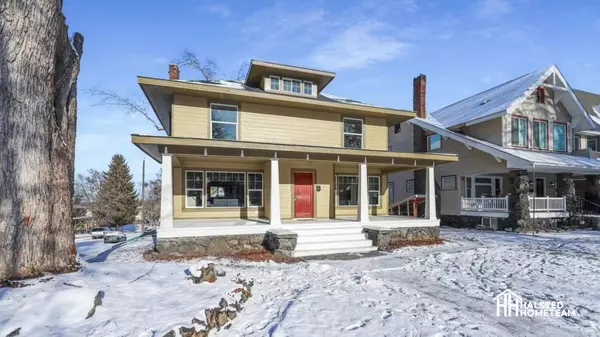
Home Values Across Washington: How Has Your Area Fared?
Looking to buy or sell a home in Washington? Wondering how your area's housing market is performing? Check out our latest report for the latest statewide trends in home values. Whether you're in Seattle, Spokane, Tacoma or beyond, we've got the scoop on what's going on in the market. Want to know mo

Is Spokane's Housing Crash Inevitable?
Buying a home in Spokane right now is like going on Tinder, swiping left for an hour; there are so many prospects, but none are interesting. That is exactly like what is going on in the market. There's so much inventory and an increase of 178 from a year prior, but none of it is interesting. It's i

Home Prices in Spokane, WA
Home Prices in Spokane For my super fans who watch my YouTube channel (thanks! 😉), this might sound a little familiar… I said these exact words about 8 months ago in February, before all the craziness happened. But I thought the content was good and still applicable! Currently, our average price i
Categories
- All Blogs (877)
- Airway Heights (5)
- Audubon/Downriver (4)
- Balboa/South Indian Trail (5)
- Bemiss (3)
- Browne's Addition (3)
- Buying Your Home in Spokane (201)
- Cheney (3)
- Chief Garry Park (3)
- Cliff-Cannon (3)
- Colbert (1)
- Comstock (4)
- Dishman (3)
- Driving Tours (1)
- East Central (3)
- Emerson/Garfield (3)
- Five Mile Prairie (5)
- Grandview/Thorpe (3)
- Greenacres (3)
- Hillyard (3)
- Home Improvement (8)
- Home Prices (5)
- Housing Inventory (6)
- Housing Market (133)
- Instagram Videos (2)
- Interest Rates (24)
- Job Market in Spokane (3)
- Know Spokane (576)
- Latah Valley (5)
- Liberty Lake (8)
- Lincoln Heights (4)
- Logan (3)
- Manito-Cannon Hill (3)
- Medical Lake (4)
- Minnehaha (3)
- Moran Prairie (3)
- Mortgage (26)
- Moving out of Spokane (3)
- Moving to Spokane (142)
- Nevada/Lidgerwood (3)
- New Construction Homes in Spokane (1)
- New Construction Opportunities (3)
- North Hill (3)
- North Indian Trail (4)
- Northwest (3)
- Opportunity (3)
- Peaceful Valley (3)
- Riverside (3)
- Rockwood (4)
- Selling Your Spokane Home (157)
- Shiloh Hills (3)
- Southgate (3)
- Spokane Events (420)
- Spokane Neighborhoods (51)
- Spokane Restaurants/Food Places (24)
- Spokane Schools (12)
- Spokane Valley (14)
- Suncrest (1)
- Things to Do in Spokane (433)
- Veradale (3)
- West Central (3)
- West Hills (3)
- Whitman (3)
- Youtube Videos (49)
Recent Posts











